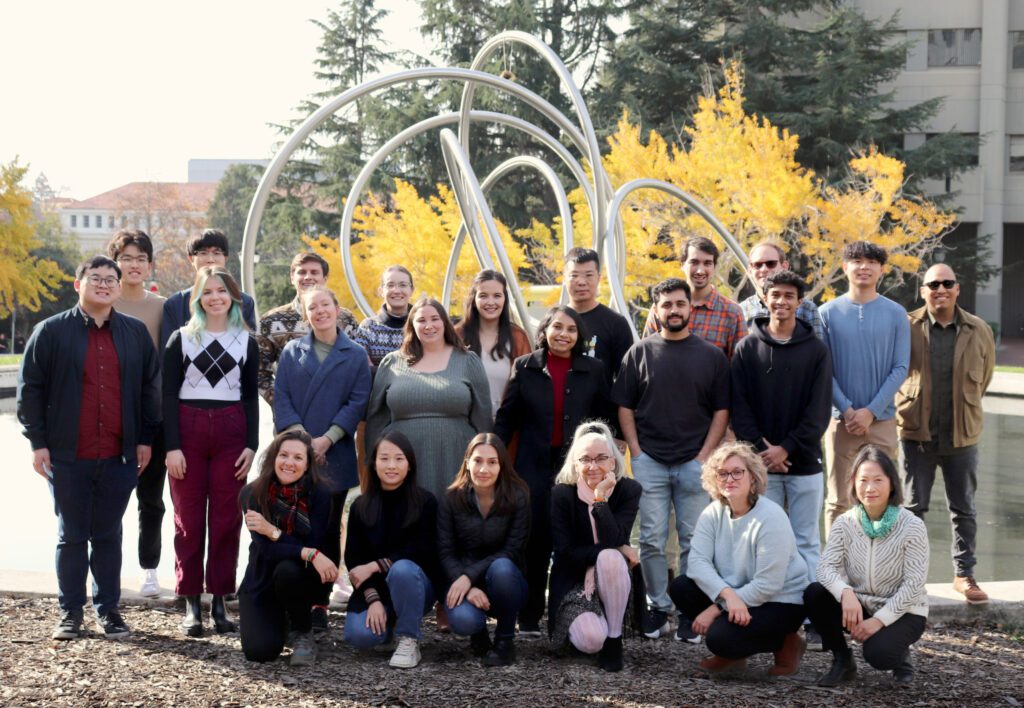Eva Nogales is a professor of biochemistry, biophysics and structural biology, and a Howard Hughes Investigator. The Nogales lab is dedicated to gaining mechanistic insight into crucial molecular processes in the life of the eukaryotic cell. The lab’s two main research themes are the dynamic self-assembly of cytoskeleton during its essential functions in cell division, and the molecular machines governing the regulation of gene expression, specially at the transcriptional level. The unifying principle in their work is the emphasis on studying macromolecular assemblies as whole units of molecular function by direct visualization of their architecture, functional states and regulatory interactions. With this overall aim in mind they use electron microscopy and image analysis, complemented with biochemical and biophysical assays, towards a molecular understanding of their systems of interest.
QB3-Berkeley: Are there any forthcoming papers or current projects that you’d be willing to tell us about?
QB3: You were recently awarded the Shaw Prize. Can you tell us a bit about that experience and what the prize means to you and your lab?
EN: Being awarded a prize of this magnitude is, obviously, very gratifying. It reflects the regard that the scientific community of peers has for the pioneering work done in my lab. It is also a unique opportunity to reflect and feel gratitude toward those young scientists that contributed to our scientific progress over the years.

QB3: When did you become interested in becoming a scientist?
QB3: What advice would you give to students interested in your field?
QB3: What brought you to UC Berkeley and what do you love about being a faculty member here?